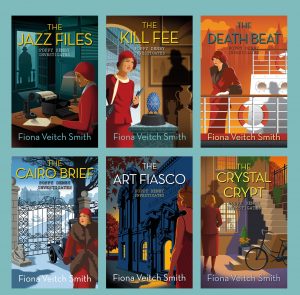A lovely review of The Death Beat in the recent Historical Novel Review magazine.
As with the previous two novels, this was taut and entertaining. I also liked Poppy’s development from the earlier books. She’s always been torn between her upbringing as a Methodist minister’s daughter and her own desires as a career-minded young woman in the 1920s. Her inner conflict felt more pronounced to me in this book. Poppy has enlightened standards for how women should be treated that deviate quite a bit from her very traditional, conservative background, which at times cause her stress. This fits in well with the blossoming awareness about the conditions of immigrants and sweatshops and people forced into prostitution. While it was fun to see 1920s New York, I confess I missed London. In any case, it was an exciting, well written story and a good series addition. Recommended.
You can read the full review here.
